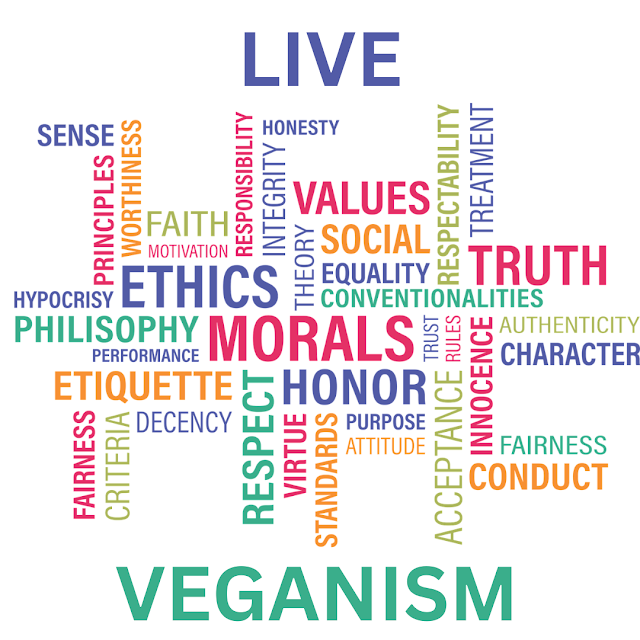Veganism is a lifestyle that excludes all forms of animal exploitation and cruelty, for food, clothing, or any other purpose. Vegans do not eat meat, fish, poultry, eggs, dairy products, or honey. They also avoid products that contain animal-derived ingredients, such as gelatin, casein, and whey. This most moral ideology is motivated by a variety of ethical, environmental, and health concerns. From an ethical standpoint, veganism is based on the belief that all sentient beings have the right to live free from exploitation and suffering.
In this article, we will argue that there are no rational ethical arguments against adopting a vegan lifestyle. We will first discuss the core ethical principle of veganism, which is to reduce harm. We will then examine the ways in which veganism promotes compassion and empathy, and how it aligns with values of kindness and environmental responsibility.
Finally, we will address some common objections to veganism, such as the argument that it is culturally insensitive or personally impractical.
Reducing Harm: A Core Ethical Principle
One of the fundamental ethical principles of veganism is the commitment to reducing harm. By abstaining from the consumption of animal products, vegans actively contribute to a decrease in the demand for industries that engage in practices known to cause immense suffering. These industries include factory farming, where animals are often subjected to overcrowded, unsanitary conditions, and inhumane treatment.
In addition to the suffering inflicted on animals, the livestock industry is also a major contributor to environmental degradation. It is responsible for a significant portion of global greenhouse gas emissions, deforestation, and water pollution. By choosing a vegan lifestyle, individuals can significantly reduce their environmental impact and help to protect the planet.
Promoting Compassion and Empathy
Veganism is also a manifestation of compassion and empathy towards all sentient beings. It recognizes that animals possess the capacity to feel pain, experience emotions, and form social bonds. By choosing a vegan lifestyle, individuals actively acknowledge the intrinsic value of these lives and extend their circle of compassion beyond human boundaries.
This empathetic stance fosters a more inclusive and interconnected worldview, ultimately contributing to a more harmonious coexistence with the natural world. It also challenges the anthropocentric (human-centered) worldview that underpins many forms of exploitation and oppression, both human and non-human.
Cultural Influences and Personal Preferences
While cultural influences and personal preferences may shape an individual's dietary choices, it is essential to recognize that cultural practices evolve over time. Embracing ethical veganism provides an opportunity to question and challenge traditions that may no longer align with contemporary understandings of compassion and sustainability. Moreover, personal preferences can be adapted and expanded to encompass a wider range of plant-based options, which are increasingly diverse, delicious, and nutritionally balanced.
Kindness and Environmental Responsibility
Beyond its ethical implications, veganism stands as a powerful means of expressing kindness and environmental responsibility. The livestock industry is a major contributor to environmental degradation, including deforestation, greenhouse gas emissions, and water pollution. Opting for plant-based alternatives significantly reduces one's ecological footprint, making it a crucial choice in the fight against climate change and the preservation of our planet's biodiversity.
Common Objections to Veganism
One common objection to veganism is that it is culturally insensitive. Critics argue that veganism is a Western ideal that is not compatible with all cultures. However, it is important to note that veganism is not a monolithic ideology. There are many different ways to practice veganism, and individuals can adapt it to their own cultural and dietary needs.
Another common objection is that veganism is personally impractical. Critics argue that vegan food is expensive, difficult to find, and/or not tasty. However, these claims are simply not true. There is a wide range of affordable, accessible, and delicious vegan food options available. Additionally, many people find that eating a vegan diet improves their health and well-being.
Conclusion
Embracing ethical veganism is a profound declaration of commitment to a world characterized by reduced harm, heightened compassion, and environmental responsibility. While personal preferences and cultural influences may play a role in shaping dietary choices, they do not negate the core ethical principle that underpins veganism. By choosing this path, individuals actively contribute to a more just, humane, and sustainable future for all sentient beings.
Additional Arguments in Favor of Veganism
In addition to the ethical arguments discussed above, there are also a number of health and environmental benefits associated with a vegan lifestyle.
- Vegan diets are typically lower in saturated fat and cholesterol than omnivorous diets, and they are higher in fiber and nutrients such as vitamins C and E. This can help to reduce the risk of developing chronic diseases such as heart disease, stroke, type 2 diabetes, and some types of cancer.
- Vegan diets are also more environmentally friendly than omnivorous diets. The livestock industry is a major contributor to greenhouse gas emissions, deforestation, and water pollution
Resources
- The Vegan Society is a non-profit organization that promotes veganism and provides information and support to vegans and those interested in becoming vegan. Their website includes information on the ethics of veganism, the environmental impact of the livestock industry, and the health benefits of a plant-based, vegan diet. They also have a variety of recipes, meal plans, and resources for new vegans.
- The Vegetarian Resource Group is another non-profit organization that provides information and support to vegetarians and vegans. Their website includes a wealth of information on the ethics, environment, and health of plant-based diets. They also have a variety of recipes, cookbooks, and other resources available.
- Forks Over Knives is a documentary film that explores the connection between diet and chronic disease. The film features interviews with experts in nutrition, medicine, and public health, and it makes a compelling case for adopting a plant-based diet to improve one's health.


Comments
Post a Comment
We welcome your input!